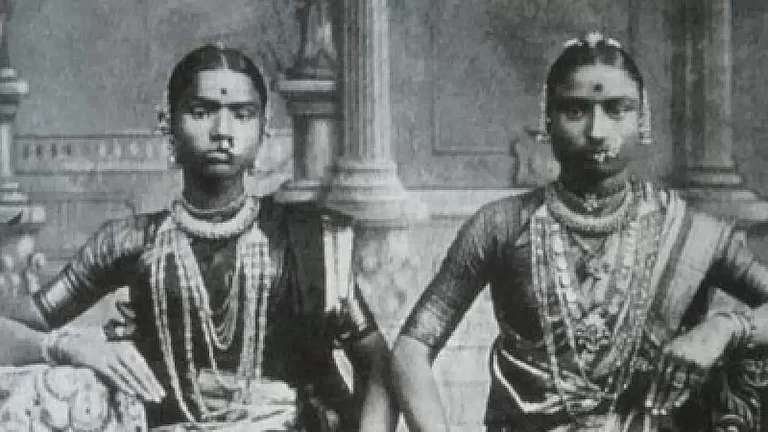"Malayalam Cinema is governed by a set of powerful men who exploit women," states the Hema Committee report, revealing that women, including young girls, face sexual harassment and exploitation, with those resisting being denied opportunities. Released on August 19 after prolonged advocacy by women both within and outside the industry, the report confirms the ongoing issue of women being viewed solely as sexual objects and highlights the unsafe, underpaid working conditions.
While the report does not name specific individuals, it offers direct references to 'well-reputed stars' who are implicated in demanding sex and harassing women.
The report highlights that the hierarchical structure of the industry often silences victims out of fear of retaliation or career sabotage. The lack of formal reporting channels for harassment and seeking justice exacerbates the issue, making it difficult for affected individuals to come forward. The absence of written contracts in the Malayalam film industry leads to disputes over remuneration, with many individuals, particularly women, being denied their promised payments. The report emphasizes the need for written contracts to ensure transparency and protect the rights of all involved.
The commission also found that women are denied basic facilities such as toilets and changing rooms. Women testified that they were forced to change costumes behind trees. Junior artists are described as being treated like 'slaves' in the industry, not recognized as artists by the Association of Malayalam Movie Artists (AMMA) or as technicians by the Film Employees Federation of Kerala (FEFKA), leaving them without formal representation or protection. Junior artists are often procured through agents or coordinators, with contracts rarely signed, leading to a lack of transparency and accountability.
Another troubling trend is the ‘unofficial ban’ imposed on artists and technicians who resist sexual advances and exploitation. Male artists are also affected if they oppose the powerful men in the industry. The report refers to these men as the ‘Mafia,’ a group of 10 to 15 individuals, including actors, producers, and directors, who control the industry and enforce bans according to their wishes. The Hema Commission does not consider the formation of Internal Complaints Committees a solution, as it believes these committees would be influenced by the 'mafia' and exacerbate the ordeal of women in cinema. According to the report, a woman could be ‘banned’ and expelled from the industry even for raising a complaint with an Internal Committee. A male actor who questioned the ‘mafia’ was reportedly excluded from cinema and serials. These bans operate silently and are not provided in writing. Even producers and directors who wish to defy these dictates and offer opportunities to ‘banned actors’ are afraid to do so, adhering to the ‘ban theory’ to protect themselves.
The Women in Cinema Collective (WCC) was formed in 2017 following the abduction and sexual assault of a leading young female actor. Many women in the WCC faced bans and unemployment. The Hema Commission was established due to persistent pressure from the WCC. Despite a WCC member denying the existence of sexual harassment during their testimony, the Commission believes such testimony is influenced by fear of ostracism and does not consider it substantial.
Headed by Justice Hema, a retired High Court Judge, the Commission also included former senior actor Sharada and then-member secretary K. Valsalakumari. The Commission submitted its report to the Government in 2019, but it was kept confidential due to the explosive nature of the allegations. Even WCC members feared that publicizing the testimonies could compromise their privacy and be life-threatening. The Government appointed another committee to revise the report for publication. The report released yesterday is a redacted version, omitting about 55 pages from the original.
Powerful organizations in Malayalam Cinema, such as AMMA and FEFKA, have not yet responded to the findings in the report. The industry remains largely silent, with only the WCC members stating that their work begins now.



























